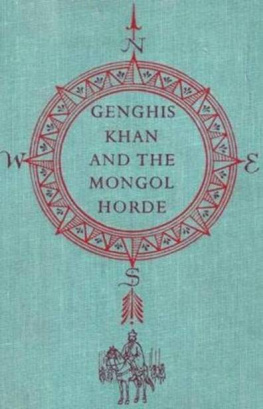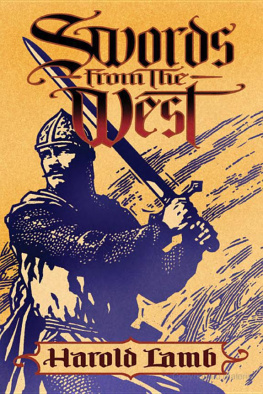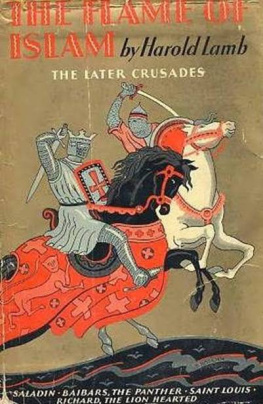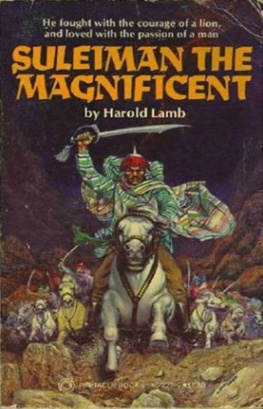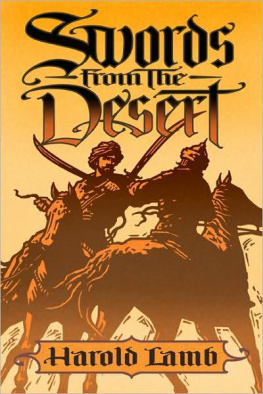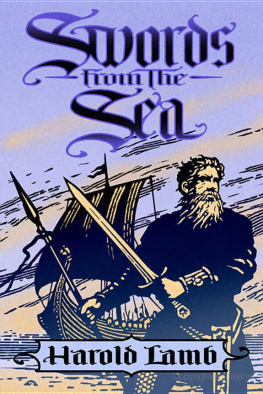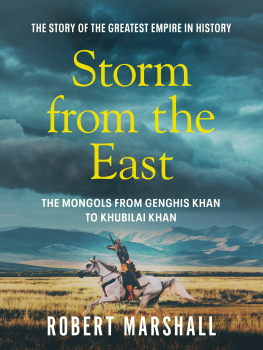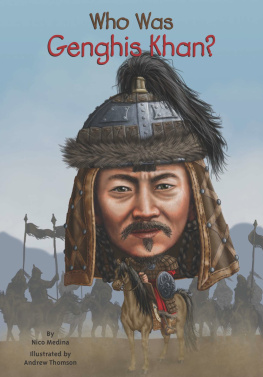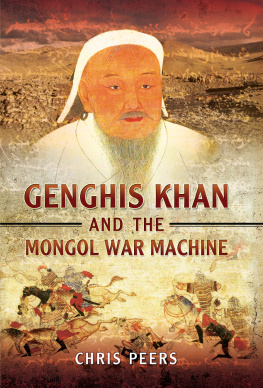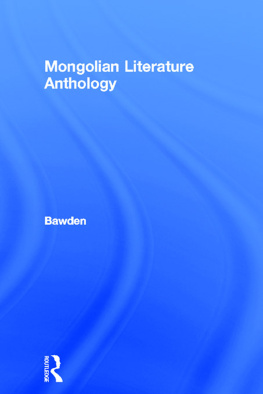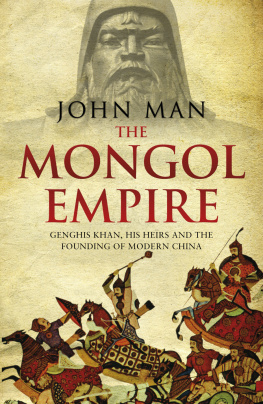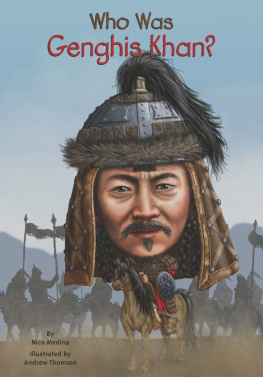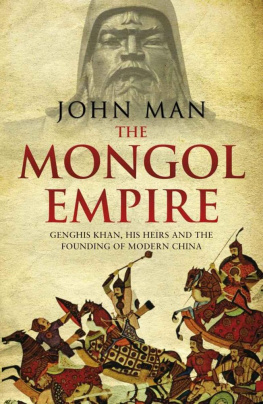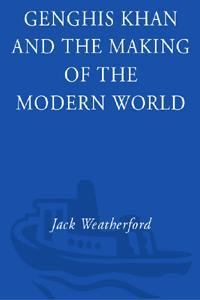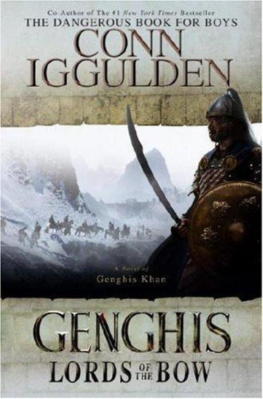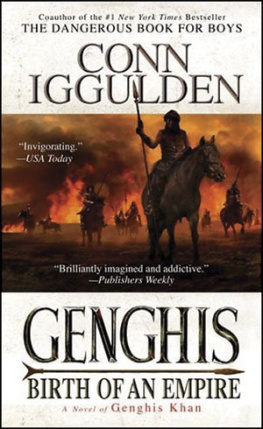Harold Lamb - Genghis Khan: Emperor of All Men
Here you can read online Harold Lamb - Genghis Khan: Emperor of All Men full text of the book (entire story) in english for free. Download pdf and epub, get meaning, cover and reviews about this ebook. year: 1986, publisher: Amereon Ltd, genre: Detective and thriller. Description of the work, (preface) as well as reviews are available. Best literature library LitArk.com created for fans of good reading and offers a wide selection of genres:
Romance novel
Science fiction
Adventure
Detective
Science
History
Home and family
Prose
Art
Politics
Computer
Non-fiction
Religion
Business
Children
Humor
Choose a favorite category and find really read worthwhile books. Enjoy immersion in the world of imagination, feel the emotions of the characters or learn something new for yourself, make an fascinating discovery.
- Book:Genghis Khan: Emperor of All Men
- Author:
- Publisher:Amereon Ltd
- Genre:
- Year:1986
- Rating:4 / 5
- Favourites:Add to favourites
- Your mark:
- 80
- 1
- 2
- 3
- 4
- 5
Genghis Khan: Emperor of All Men: summary, description and annotation
We offer to read an annotation, description, summary or preface (depends on what the author of the book "Genghis Khan: Emperor of All Men" wrote himself). If you haven't found the necessary information about the book — write in the comments, we will try to find it.
Genghis Khan: Emperor of All Men — read online for free the complete book (whole text) full work
Below is the text of the book, divided by pages. System saving the place of the last page read, allows you to conveniently read the book "Genghis Khan: Emperor of All Men" online for free, without having to search again every time where you left off. Put a bookmark, and you can go to the page where you finished reading at any time.
Font size:
Interval:
Bookmark:
Here the Mongols settled down to a long and bitter siege, in which lacking large stones for their casting machines, they hewed massive tree trunks into blocks and soaked the wood until heavy enough for their purpose. In the hand-to-hand fighting that lasted within the walls for a week, the chroniclers say they used flaming naphtha a new weapon that they must have picked up among the Mohammedans, who had handled it with devastating effect against the crusaders of Europe. Urgench fell, and they trotted back with their captives and spoil to the headquarters of the Khan, but Jelal ed-Din, the valiant son of a weak father, escaped to lead fresh forces against them.
Meanwhile Genghis Khan withdrew his warriors from the lowlands during the heat of the summer a burning, sultry heat that distressed the men accustomed to the high altitudes of the Gobi. He led them up into the cooler ranges beyond the Amu. To keep them occupied while the horse herds grazed and with an eye to discipline he issued an order for the favourite pastime of the horde, a seasons hunt. A Mongol hunt was no less than a regular campaign, against beasts instead of men. The whole horde shared in it, and its rules had been laid down by the Khan himself, which meant that they were inexorable. Juchi, the Master of Hunting, being absent on duty, his lieutenant galloped off to survey and mark several hundred miles of hills. Streamers were planted for the starting points of the various regiments. Beyond the horizon the gurtai^ or closing point of the hunt, was chosen and likewise marked. Witness then, the squadrons of the horde, in high fettle, moving off to right and left, bivouacking under the orders of the hunters, waiting the arrival of the Khan and the fanfare of horns and cymbals that would start them off. They were thus arranged in a shallow half-circle, covering perhaps eighty miles or so of countryside.
The Khan appearing with his higher officers, and princes and youthful grandsons, the riders mounted, forming a close-knit line, sometimes two ranks deep. They carried all weapons and equipment used against human enemies, with the addition of wicker shields. The horses surged forward, the officers dropped behind their commands, and the rousing of the animals began. The warriors were forbidden to use their arms against the animals, and it was a real disgrace to allow any four-footed thing to slip through the line of riders. They crushed through thickets, beat up gullies and climbed hillocks, shouting and cjamouring when a tiger or wolf was seen sliding out of the brush.
Matters went a little harder in the night. After the first month of the hunt, great numbers of animals were massing ahead of the half-circle of humans. The warriors went into camp, lighted fires, posted sentries. There was even the usual password. Officers went the rounds. No easy matter to keep a line of pickets when all the four-footed life of the mountains was astir in front of them eyes glowing from the ground, the howling of wolves and the spitting snarl of leopards breaking through the silence.
Harder still a month later, when the circle had drawn in a little and the multitude of animals began to feel it was being driven. No relaxing the rigour of the hunt. If a fox went to earth it must be dug out again with mattocks; if a bear trundled into a hole in the rocks, someone must go in after it without injuring the bear! Many a chance here for the young warriors to show their skill and fearlessness, especially if a solitary tusked boar or a herd turned and rushed the line of riders.
One part of the line encountered the wide bend of a river, and was held up. Straightway couriers were sent speeding along the half-circle of the hunters, with orders to hold back the rest of the line until the river could be crossed. The driven beasts were already over, for the most part.
The warriors urged in their horses, and slipped from the saddles, clinging to mane or tail. Some laced up their leather kits air-tight and used them as rude floats. Once on the far bank they mounted again, and the hunt went forward.
Here and there appeared the old Khan, watching the behaviour of the men, and the way the officers handled them. He said nothing during the hunt, but he remembered such details.
Guided by the huntsmen, the half-circle closed its wings, nearing the gurtat. The beasts began to feel the pressure deer leaping into view with quivering flanks, tigers turning this way and that, heads lowered, snarling. Out of sight, beyond the gurfai, the circle was closed, tightening around the game. The brazen clamour of cymbals and the roar of shouting grew louder; the ranks formed two and three deep; the Khan, riding up to the mass of men and frantic beasts, gave a signal. The riders parted to let him through.
By old custom the Khan was to be first among the cornered beasts. He carried a bare sword in one hand, his bow in the other. It was permissible to use weapons now. The chroniclers say that he picked out the more dangerous of the brute antagonists, launching his arrows at a tiger, or reining his horse against wolves. When he had killed several beasts, he withdrew from the ring, riding up a hill overlooking the gurtai and sitting there under a pavilion to watch the exploits of the princes and officers who next entered. It was a Mongol arena, the gladiatorial games of the nomads, and as with the gladiators of Rome not a few who entered the arena were carried from it mangled or lifeless.
When the signal for the general slaying was giveo, the warriors of the horde surged forward, taking what lay in their path. A whole day might pass in this slaughter of game until the grandsons and boy princes of the horde came, as custom required, to the Khan to beg that the surviving animals should be allowed to live. This request was granted, and the hunters turned to gather up the carcases. This hunting trained the warriors, and the closing in of the ring of riders was used in warfare against human beings as well.
In this year and in an enemy country, the hunt lasted no longer than four months. The Khan wished to be ready for the autumn campaign, and to meet Juchi and Chatagai, returning from the inland sea with word of the death of the Shah.
Until now the Mongols had marched almost without interruption through Islam. They had crossed rivers, and taken cities, as swiftly as a modern traveller with servants and a caravan might pass from place to place. Mohammed the Warrior, too ambitious in the beginning, too fearful in the end, had abandoned his people to try to save himself and had earned thereby only ignominy and a beggars grave.
Like the emperor of Cathay, he had thrown his armies into cities to escape the Mongol cavalry that remained invisible until the hour of battle and then manoeuvred in terrible silence in obedience to the signals given by moving the standards signals that were repeated to the warriors of a squadron by the arm movements of an officer. This, during the day and in the din of conflict when the human voice could not be heard and cymbals and kettle drums might be mistaken for the enemys instruments. At night such signals were given by the raising and lowering of coloured lanterns near the tugh or standard of the commander.
After the first rush upon the northern line of the Syr, Genghis Khan had concentrated his columns on what he thought to be the chief cities of the empire, Bokhara and Samarkand. He had broken this second line of defence without serious trouble, and had concentrated the horde again in what might be called the third line the fertile hills of northern Persia and Afghanistan.
Font size:
Interval:
Bookmark:
Similar books «Genghis Khan: Emperor of All Men»
Look at similar books to Genghis Khan: Emperor of All Men. We have selected literature similar in name and meaning in the hope of providing readers with more options to find new, interesting, not yet read works.
Discussion, reviews of the book Genghis Khan: Emperor of All Men and just readers' own opinions. Leave your comments, write what you think about the work, its meaning or the main characters. Specify what exactly you liked and what you didn't like, and why you think so.

